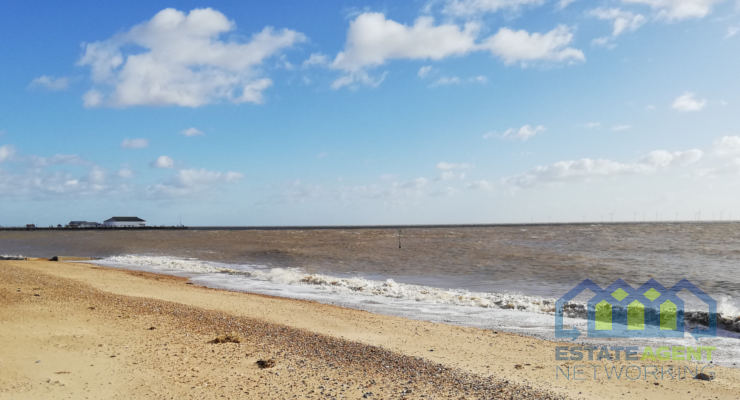SEO for Estate Agents – Is it worth the hassle & cost?
Search Engine Optimisation for Estate Agents –Is it worth the hassle & cost?
The following is a real-world example (analysis carried out December 2014) of an Estate Agency in Bromley trying to determine whether they should employ an SEO company to ‘get them to the top of Google’ on the basis of potential ‘floating’ Vendors and Landlords (those who are undecided about which agent to choose) and applicants may use Google to find a suitable agent.
Below are the ACTUAL number of searches (monthly average) carried out on Google each month under their most likely* phrases: –
| Google Search term | Average monthly searches on Google | ‘Clicks’ on #1 position | ‘Clicks’ on #2 position |
| estate agents Bromley | 420 | 131 | 59 |
| property for sale Bromley | 320 | 100 | 45 |
| houses in Bromley | 140 | 43 | 20 |
| new homes Bromley | 90 | 28 | 12 |
| letting agents Bromley | 70 | 22 | 10 |
| property management Bromley | 30 | 9 | 4 |
| surveyors Bromley | 20 | 6 | 3 |
| property to let Bromley | 10 | 3 | 1 |
| rental agents Bromley | <10 | ||
| top estate agent Bromley | <10 | ||
| estate agents with cheap fees Bromley | <10 | ||
| student accommodation Bromley | <10 |
The TOTAL number of property-related searches in Bromley per month (per above chart) is surprisingly low at just 1100 but the potential earnings for each ‘win’ are very high – this makes it a “low-volume-high-value” search term.
So is the “juice worth the squeeze?”
The average selling price of a property in Bromley in 2014 was £382,920 (source: RightMove). With an average agency fee of 1.5% (source: Home Owners Alliance) this would mean each instruction is worth a potential £5743.80 or £3829.20 at 1% fees. It goes without saying that some of those searches will be by applicants but applicants tend to go to the RightMove & Zoopla as a first port of call to see the entirety of the “whole market”- not just one agent’s properties.
Although the number of searches (above) total just 1100, each resulting instruction (if sold) is worth circa £4000 in revenue to an Estate Agency but there are only 10 places on page 1 of Google’s default organic (excluding pay-per-click ads) search; the top 5 places getting 67% of the click-throughs (source: moz.com) with the number 1 slot getting over half of these!
So the maximum number of clicks for the agent in the #1 position for all phrases in the chart is just 343. We cannot say how many of these are vendors, landlords, applicants or others (but it would be reasonable to assume that applicants are more likely to go to the property portals as a first port-of-call). We are unable to provide statistics on conversion ratios but we thought it would be useful for agents to see some numbers to help them make more informed decisions.
SEO in simple terms!
If you have continued reading this far you have probably concluded the quest for the Holy SEO Grail is worth pursuing. In the following article we will attempt to bust a few myths about SEO for Estate Agents to enable you to make the right decision about your SEO provider and website provider (yes, we do have a vested interest in being your website provider but please give us the benefit of the doubt and judge our impartiality on what we say)
There is NO Silver bullet that will get any website onto page 1 of Google – Google uses something called an algorithm (a formula) which looks at MANY things to make a determination about which websites should rank the highest under any search term so just getting one thing spectacularly right has little hope of getting you to the top. Google wants “the whole enchilada” as they say across the pond, not just being great at one thing.
The basics – “On-site” & “Off-site SEO”
“On-site” SEO is what you do ON your website that makes it appeal to Google’s algorithms whereas “off-site” SEO is anything you do outside of your website that influences how Google ranks you. Off-site includes things such as writing blogs on other websites/forums/social media or connections with other websites that may link back to pages on your website.
Although SEO can be described a rather a dark art, below is a chart of the (universally accepted by the SEO community) 18 most important ON-SITE things any self-respecting property website should do/have to optimise its appeal to Google. We have kept the explanations very basic to keep this a ‘quick read’ but a full version will follow for those agents who are interested in learning more. Please enquire here in advance.
| Item | Importance | In a nutshell… | Notes |
| Meta Title | Critical | Tells Google the main subject of the page | It’s the blue underlined text you see in Google search results and is your declaration to them of what topic the page is about. |
| Meta Description | Critical | Tells Google more about that page | It’s the black text you see in Google search results under the blue headline – underpins the Meta Title & encourages click-throughs if well-written! |
| Domain name | High | Quite simply – your web address! | Not much you can do about this as it’s usually the company name. If the company name matches the search term E.g. “Bromley-Estates.co.uk” this is an advantage. |
| URL Structure | High | The longer web addresses of all your pages | Google favours ‘clean’ simple URL’s that contain keywords within the search term and little else!www.yourdomain.com/aspx.6897-79876 is not the way to go! |
| Adequate copy | High | The amount of written content in a page. | All pages on a website should have enough content on them to adequately describe what the page is about. Pages with little or no content can be seen as irrelevant. |
| Social sharing | High | Ability to share your content & articles on their social channels | Google values ‘signs of life’ coming from your website – when users ‘share’ your content on their own social media accounts it is a very powerful indicator that your content has value to the public. |
| Document structure – H-Tags | Medium | Structure of the HTML (code) of your website | Helps Google identify the hierarchy of importance of the elements in any web page. Without it Google has to ‘guess’ which is not ideal. |
| Robots.txt | Medium | Tells Google’s ‘spiders’ (‘bots’) which pages to index or ignore | Prevents Google indexing pages and items that dilute the potency of your message. |
| Anchor text | Medium | Links within your website to other pages on the site | Easy to get wrong or overdo it! Must be key word relevant and genuine. |
| 404 error handling | Medium | Page does not exist anymore | Google still has a page in its index that no longer exists on your website. Important to help ‘lost’ visitors find their way around. |
| 301 redirects | Medium | Telling Google where a (now) missing page has gone | If you delete a page from your site and Google has already indexed it – this tells them which page has replaced it rather than leaving an ‘orphaned’ link. |
| Page loading times | Medium | The time any page takes to load when clicked | If your pages are slow to load this will diminish the user experience so Google deems it a negative factor. |
| Over optimisation | Medium | Over-use of keywords | If you “over-egg the pudding” Google will penalise your actions. They can spot contrived pages easily so beware and stick to genuine content. |
| Canonical Tagging | Medium | Helps Google rationalise search results pages | Helps Guide Google to the preferred version of a page containing a list that can be ordered by various factors (price, date listed etc.) |
| Google+ Business | Medium | Officially register your business with Google | Once you have this you can start building a profile (with reviews etc.) which Google will take into account when assessing your ‘importance’ to the consumer. |
| URL case sensitivity | Low | Using CAPS in a URL | Keep all URL’s lower case. |
| Alt-tags | Low | Info about graphics on your website | Telling Google ‘what’ images are so it can easily identify a photo of E.g. ‘Bromley Common’ as opposed to it being just photo1.jpg |
| Domain longevity | Low | How long your domain has been active | It tells Google your website is not here today, gone tomorrow which is an indication of stability. Can be harder getting a new domain up the rankings. |
| Responsive design | Medium | Your website adapts to any device | Again Google knows websites built responsively give a better user experience making them easier to use & read on any device. Only newer sites are currently likely to be responsive. |
| Content update frequency | Medium | How often you change the content on your website | The more significant the change, the better – minor content tweaks have little value. Writing News articles & adding genuine client Reviews is of great benefit. |
Technicweb websites are not built using any ‘open-source’ (free, public software) systems like WordPress or Joomla but instead are built from scratch on our own Microsoft platforms of asp.net, SQL and JQuery so we can control all the most important on-site SEO factors for our clients. All our sites are created to maximise SEO in the way they are constructed. Moreover they give our clients (or their SEO consultants) unparalleled (but easy-to-use) control over their websites to improve their Google ranking.
So, do you need to employ and SEO specialist?
Most agents won’t bother with SEO so those that make an effort will almost certainly benefit (“In the land of the blind, the one-eyed man is king” – Desiderius Erasmus). In our experience few agents make the time to carry out the tasks needed each month to improve SEO so this is best outsourced to an SEO expert. They can also assist with a whole host of off-site SEO activities and social media blogging on your behalf as well as off-site ‘housekeeping’ – for example ensuring back-links from bad websites to your website are either removed or discredited with Google (known as disavowing).
If you require a website that engineered to a very high-level of SEO, that is what Technicweb provides. We work with many excellent SEO specialists* who have helped our clients greatly in their on-going SEO management.
We hope we may have the opportunity of working with you on a new website and in the meantime invite you to see our products & services at www.technicweb.com









